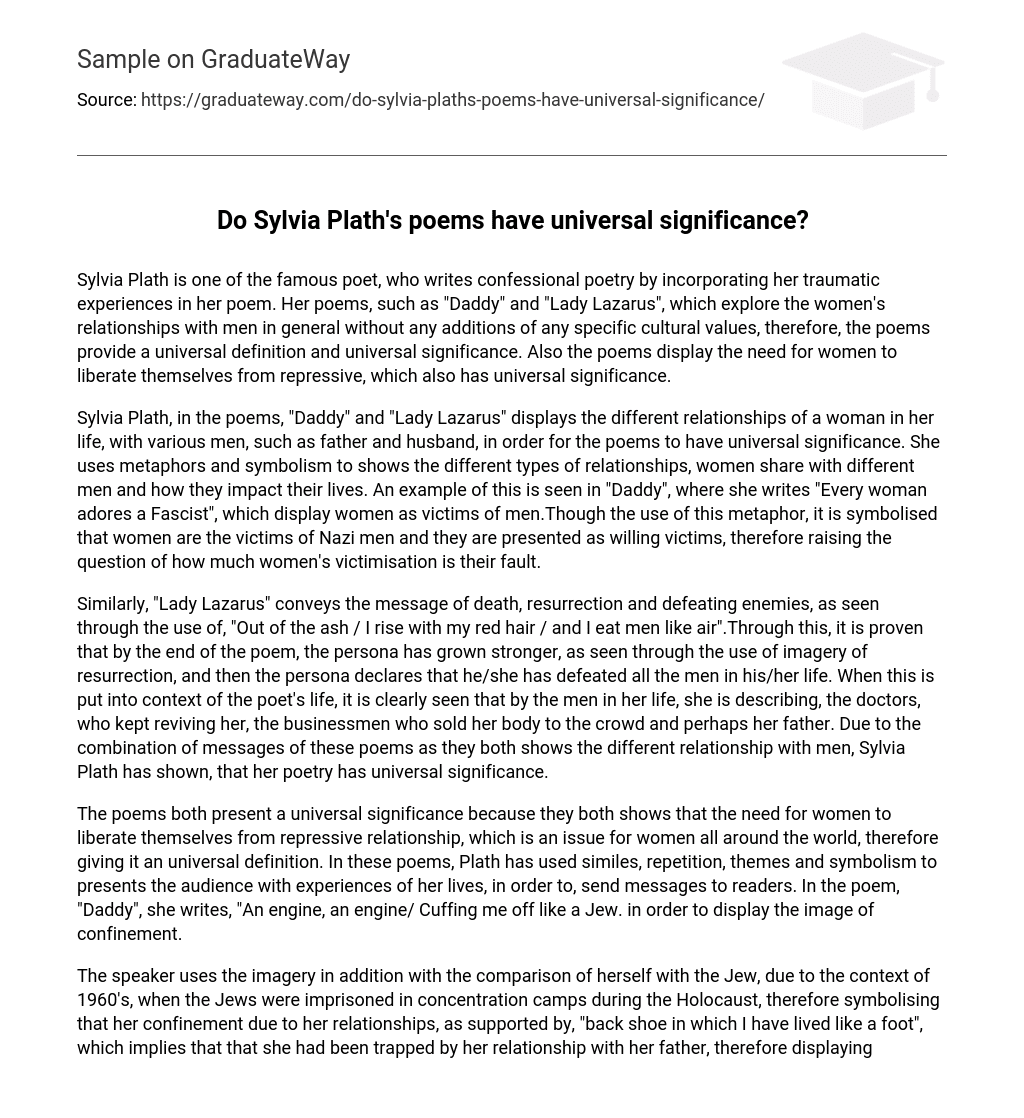Sylvia Plath, a renowned poet, is known for her confessional poetry. Her poems, like “Daddy” and “Lady Lazarus”, incorporate her traumatic experiences and examine women’s relationships with men in a general sense, disregarding specific cultural values. As a result, these poems offer a universal definition and significance. Additionally, they emphasize the universal need for women to liberate themselves from repressive forces.
Sylvia Plath explores the diverse relationships women have with men, such as fathers and husbands, in her poems “Daddy” and “Lady Lazarus.” She utilizes metaphors and symbolism to illustrate the various types of relationships and their impacts on women’s lives. In “Daddy,” for instance, Plath states, “Every woman adores a Fascist,” portraying women as victims of male dominance. By employing this metaphor, she symbolically represents women as willing victims of Nazi men, prompting us to question the extent to which women contribute to their own victimization.
In a similar vein, “Lady Lazarus” also communicates themes of death, rebirth, and triumphing over adversaries. This is evident in the lines, “Out of the ash / I rise with my red hair / and I eat men like air.” The poem ultimately reveals the persona’s increased strength, depicted through imagery of resurrection, as well as their proclamation of overcoming all the men in their life. Considering the poet’s personal experiences, it becomes apparent that these men represent the doctors who repeatedly revived her, the businessmen who exploited her for spectacle, and possibly her father. Through these intertwined messages about relationships with men, Sylvia Plath effectively demonstrates the universal relevance of her poetry.
Both poems address the universal significance of women liberating themselves from oppressive relationships. This issue resonates with women globally, thus giving it a universal definition. Plath utilizes similes, repetition, themes, and symbolism to convey her personal experiences and send messages to readers. An example of this can be seen in the poem “Daddy” where she writes, “An engine, an engine/ Cuffing me off like a Jew,” effectively portraying the image of confinement.
The speaker employs imagery and compares herself to Jews in the context of the 1960s, when Jews were held captive in concentration camps during the Holocaust. This comparison symbolizes her own confinement due to her relationships, as illustrated by the line “back shoe in which I have lived like a foot.” This line suggests that she has been trapped by her relationship with her father and emphasizes the importance of freeing oneself from suppressive relationships. A similar theme is expressed in “Lady Lazarus” when the persona refers to her right foot as a paper weight, representing her feelings of confinement and desire for freedom. Both poems highlight how the speaker is confined by internal archetypes, leading her to feel trapped and in need of liberation from repressive relationships. Although these poems draw comparisons between Jews and Nazis, they still convey a universal message that holds significance for all.





